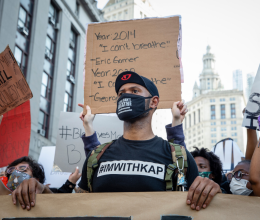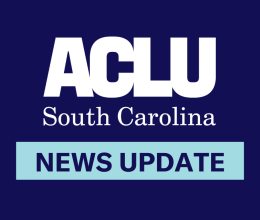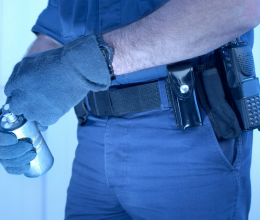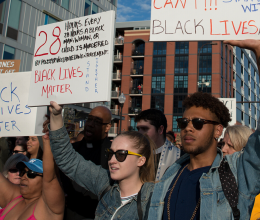
By: Cynthia Roldan
Attempting to restore trust in law enforcement after the fatal shooting of Walter Scott by a North Charleston police officer, a state Senate panel on Thursday affirmed the right to record police activity in public and called for independent investigations of police shootings.
“What we’re trying to do is create more credibility in the system, transparency in the system, for the people out there in the community so that they can end up having confidence in our law enforcement agencies,” said Sen. Gerald Malloy, D-Hartsville, a co-sponsor of the recording bill.
Malloy’s bill bars police from arresting people recording or taking pictures of on-duty officers in public on obstruction of justice charges, as long as they aren’t physically interfering with an investigation and have the right to be where they are.
Susan Dunn, of the American Civil Liberties Union, asked lawmakers to be clear that they were not creating a new right because it’s already legal to record law enforcement officers on cellphones and other devices.
The Senate Judiciary Subcommittee approved the bill 4-1, with Sen. Katrina Shealy, R-Lexington, dissenting because of concerns about a person filming cops infringing on other citizens’ privacy.
A second bill, which the subcommittee passed unanimously, requires police departments to have an outside agency investigate officer-involved deaths. Sen. Marlon Kimpson, D-Charleston, said the bill was needed because some law enforcement agencies investigate themselves.
A third bill, also advanced unanimously, mandates that the State Law Enforcement Division investigate officer-involved shootings that result in bodily injury or death. SLED Chief Mark Keel asked lawmakers to amend the bill as it makes its way through committees to ensure that the agency would only investigate shootings in which there are serious injuries or death. Asking SLED to investigate currently is optional, and at least one major law enforcement agency in the state — the Richland County Sheriff’s Office — does its own investigations.
“Here you have three bills in the aftermath of the Walter Scott shooting to bring greater transparency to law enforcement behavior,” Kimpson said. “What we’re doing here is significant.”
Kimpson and Malloy said Thursday’s votes are part of an ongoing effort to improve law enforcement in South Carolina that includes the Senate’s approval Wednesday of a bill requiring all officers in the state to wear body cameras.
Bills requiring officers to wear body cameras had been introduced before Scott was killed April 4 in a confrontation with Patrolman 1st Class Michael Slager, but had languished in committee. Body cameras became a rallying cry after a passerby’s cellphone video showed Slager, who claimed he was defending himself, firing eight shots at Scott’s back as he tried to flee. Slager was fired and charged with murder after the video became public.
Under the bill, video from body cameras would not be considered a public record and be subject to open records laws unless a complaint is filed accusing an officer of a crime or misconduct. Crime victims and attorneys representing suspects or litigants would have access.
The restriction, which lawmakers said was intended to safeguard privacy, defeats the purpose of having the cameras, said Bill Rogers, executive director of the South Carolina Press Association.
“Why have tapes ... if the police control who sees them?” Rogers said. “I think it gives police far too much power to withhold these videotapes.”



